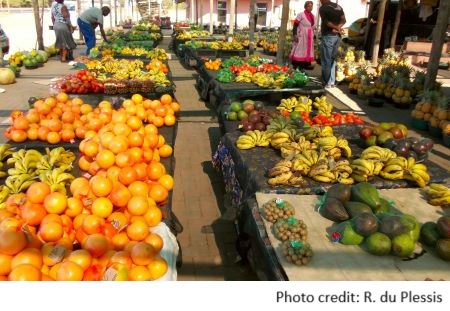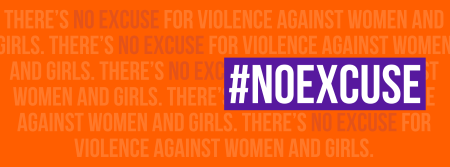International Development Week (IDW) is held annually in Canada during the first full week of February. IDW aims to inform, inspire, and involve Canadians in Canada’s international development efforts. It is a time for us to reflect and take pride in the many ways Canadians are helping to eradicate poverty and make our world more just, equitable, and sustainable.
This year, International Development Week begins Sunday, February 2 and runs till Saturday, February 8. Many events are planned across Canada, some in person, others online.
Check out events sponsored by Cooperation Canada and other events sponsored by each of the eight provincial centres for international and global cooperation below. (You may wish to explore each of the regions because many events will be offered virtually. You aren't limited by geography!)
Northern regions of Canada
British Columbia
Alberta
Saskatchewan
Manitoba
Ontario
Quebec
Atlantic provinces
We hope you are inspired by Canada's and Canadians' contributions as you explore the many learning opportunities offered during International Development Week.
In a recent article, Professor William G. Moseley argues that in order to address Africa's food security problems, African agriculture needs to be de-colonialized. He puts forward agroecology as a sustainable, economical, and decolonial approach, one that works with science, nature, and traditional local knowledge. Click here to read more.
Violence against women and girls remains one of the most prevalent and pervasive human rights violations in the world. Globally, almost one in three women have been subjected to physical and/or sexual intimate partner violence, non-partner sexual violence, or both, at least once in their life.1
November 25th marks the International Day for the Elimination of Violence Against Women and the beginning of the UN’s 16 Days of Activism Against Gender-Based Violence.
The United Nation’s Spotlight Initiative is the world’s largest targeted effort to end all forms of violence against women and girls. Learn more about this high-impact global initiative in this 2-minute video: Unprecedented: A Pathway for Ending Violence against Women and Girls .
And, during the upcoming 16 Days, consider how might do your part to make a difference: 10 Ways You Can Help End Violence Against Women.
“A group of governments, multilateral development banks, UN agencies, and some of the world’s largest philanthropic organizations are announcing expanded efforts and increased coordination and cooperation to scale up investment in sustainable agriculture and agrifood systems that directly benefit smallholder farmers. The main objective is to better support millions of small-scale producers and family farmers in boosting their productivity and quality of life as part of a broader transformation of global food systems. Family farmers, responsible for producing up to 70 per cent of food consumed in low- and middle-income countries, are critical to local food security, poverty reduction, climate resilience and safeguarding natural resources.” Read more about this recent announcement here.
“The right funding now can protect the frontlines of the climate crisis from the worst effects of extreme weather events.
For many developing countries, particularly in Africa, the cost of climate impacts is staggering.
We will not be able to reduce poverty, eliminate hunger, and build a prosperous and resilient global community without addressing the climate crisis.”
These are the urgent words of Ban Ki-moon, former Secretary General of the United Nations, in a recent article in The Guardian in the lead-up to COP29. He urges world leaders to pledge bold and transformative financing for action on climate adaptation, grounded in the needs of developing countries.
Click here to read the full article.
“Everyone should have access to enough, nutritious, diverse, affordable, and safe foods.” -- FAO
October 16 is marked each year as World Food Day. This year the UN invites us to focus on foods (with an “s”) to remind us of the importance of nutritional diversity. Click here to read more about the right to foods for a better life and a better future. And, for inspiration, watch this 30-second video for World Food Day from the UN’s Food and Agriculture Organization.
"Dismiss ‘grannies’ as frail old biddies at your peril: they’re some of the toughest activists out there."
In an opinion piece in The Guardian, writer Sally Feldman challenges "granny" stereotypes and highlights the contributions of older women activists around the world.
Read her feisty and inspiring article here.
"Africa’s growing debt problem risks reversing decades of progress, pushing millions of people into poverty, and setting off political instability.... Fortunately, it’s a problem with known solutions."
In its weekly Aftershocks newsletter, ONE Campaign outlines the current state of debt in Africa and presents two solutions to this growing problem.
Click here to read more.
Despite being preventable and treatable, malaria kills nearly half a million people and infects over 200 million worldwide every year – 70 per cent of whom are children under five years old.
Why are young children, pregnant women, and other groups in vulnerable situations not accessing the malaria services they need? On World Malaria Day 2024, the World Health Organization is highlighting barriers to health equity, gender equality, and human rights in malaria responses worldwide – as well as concrete measures to overcome them.
Click here to read more.
"ReconAfrica's oil exploration activities have damaged homes, devastated subsistence crops, and destroyed land, illegally and without the consent of local Indigenous communities. They’ve demonstrated a complete lack of concern for the impact that their actions have on the fundamental rights of the local communities and the protected species will be driven closer to extinction." – Rob Parker, member of Saving Okavango's Unique Life (SOUL)
After years of persistent advocacy by GRAN and partners, a formal complaint against the Canadian oil and gas company Reconnaissance Energy Africa Ltd. (ReconAfrica) has now been lodged with the Canadian Ombudsperson for Responsible Enterprise (CORE), alleging human rights abuses in Namibia.
This complaint to the Ombudsperson is a critical step in protecting the ecologically sensitive Okavango Delta region and the rights of Indigenous small-scale farmers and fishers who live and work within it. Click here to learn more about this important human rights case and the GRAN partner organizations that are working to protect the Okavango Delta and its people.
Pages


